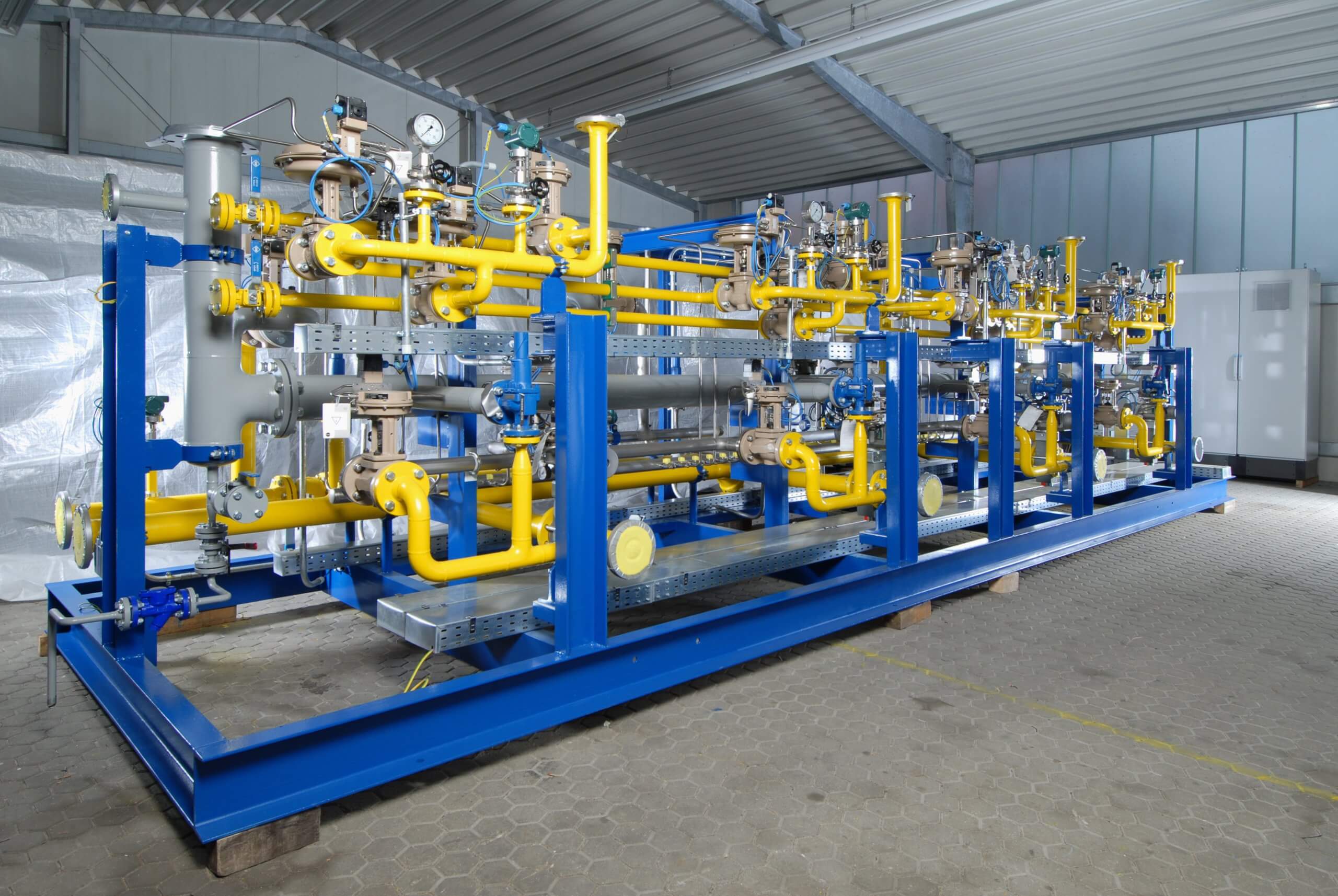
Gas purification packages are sophisticated processing systems engineered to remove contaminants including hydrogen sulfide, carbon dioxide, water vapor, mercury, and other impurities from natural gas, process gas streams, and industrial gas applications. These critical treatment units ensure gas quality compliance with pipeline specifications, environmental regulations, and downstream process requirements across oil and gas production facilities, refineries, petrochemical plants, and gas processing installations worldwide. Purification technology selection depends on contaminant types, concentrations, flow rates, and product specifications, integrating multiple separation mechanisms including chemical absorption, physical adsorption, membrane separation, and catalytic conversion to achieve target purity levels and operational efficiency.
Amine treating systems represent the most widely deployed technology for acid gas removal, utilizing chemical solvents such as monoethanolamine (MEA), diethanolamine (DEA), methyldiethanolamine (MDEA), and specialty formulated amines for selective H2S and CO2 removal. These packages feature absorber columns with structured packing or trays, amine regeneration systems with reboilers and condensers, and recirculation equipment for continuous solvent recovery. Modern amine units handle gas flow rates from 1 MMSCFD to over 1000 MMSCFD with acid gas removal efficiencies exceeding 99.5%. Key design parameters include amine circulation rates, regenerator energy requirements, and solvent selectivity ratios for optimal performance and operating cost minimization.
Molecular sieve dehydration packages utilize solid adsorbent materials including activated alumina, silica gel, and synthetic zeolites for precise water removal and trace contaminant adsorption. These systems feature multiple adsorber vessels operating in cyclic modes with regeneration gas heating and cooling systems for continuous operation. Molecular sieve units achieve water content reductions to less than 1 ppmv, meeting stringent pipeline and process specifications. Advanced designs incorporate temperature swing adsorption (TSA) and pressure swing adsorption (PSA) technologies with automated valve sequencing and process control systems. These packages handle pressures up to 1500 PSIG with regeneration cycles optimized for maximum adsorbent life and energy efficiency.
Membrane separation systems provide selective contaminant removal through permeation rate differences across polymeric or ceramic membrane materials. These compact packages excel in applications requiring CO2 removal, nitrogen rejection, and hydrogen purification with minimal moving parts and reduced maintenance requirements. Membrane systems feature multiple stages with interstage compression and recycle streams for enhanced separation efficiency. They accommodate feed pressures up to 1000 PSIG with separation factors optimized for specific gas compositions and purity requirements. Modern membrane packages incorporate automated pressure control, temperature management, and membrane monitoring systems for optimal performance and operational reliability.
Specialized purification technologies include sulfur recovery units (SRU) for hydrogen sulfide conversion, mercury removal systems utilizing activated carbon or specialized adsorbents, and catalytic treatment units for trace contaminant destruction. Claus sulfur recovery processes feature thermal and catalytic stages with tail gas treatment for environmental compliance and sulfur product recovery. Mercury removal packages utilize fixed-bed adsorbers with sulfur-impregnated activated carbon achieving mercury concentrations below 0.01 μg/m³. Advanced purification systems integrate multiple technologies in optimized configurations for complete contaminant removal and gas conditioning.
Commercial gas purification package procurement encompasses comprehensive process design including contaminant analysis, flow rate specifications, and product quality requirements. Critical performance parameters include removal efficiencies, pressure drop limitations, energy consumption, and regeneration requirements. Quality construction standards require compliance with ASME, API, and international codes with comprehensive testing and commissioning protocols. Modern purification packages feature integrated control systems, online analyzers, and predictive maintenance capabilities for automated operation and performance optimization. Leading suppliers provide complete engineering services, performance guarantees, and lifecycle support including catalyst management, solvent optimization, and equipment upgrades ensuring reliable gas treatment solutions for demanding industrial applications requiring precise contaminant removal and gas quality assurance.
